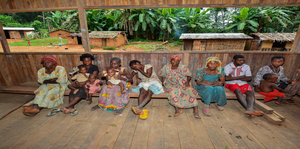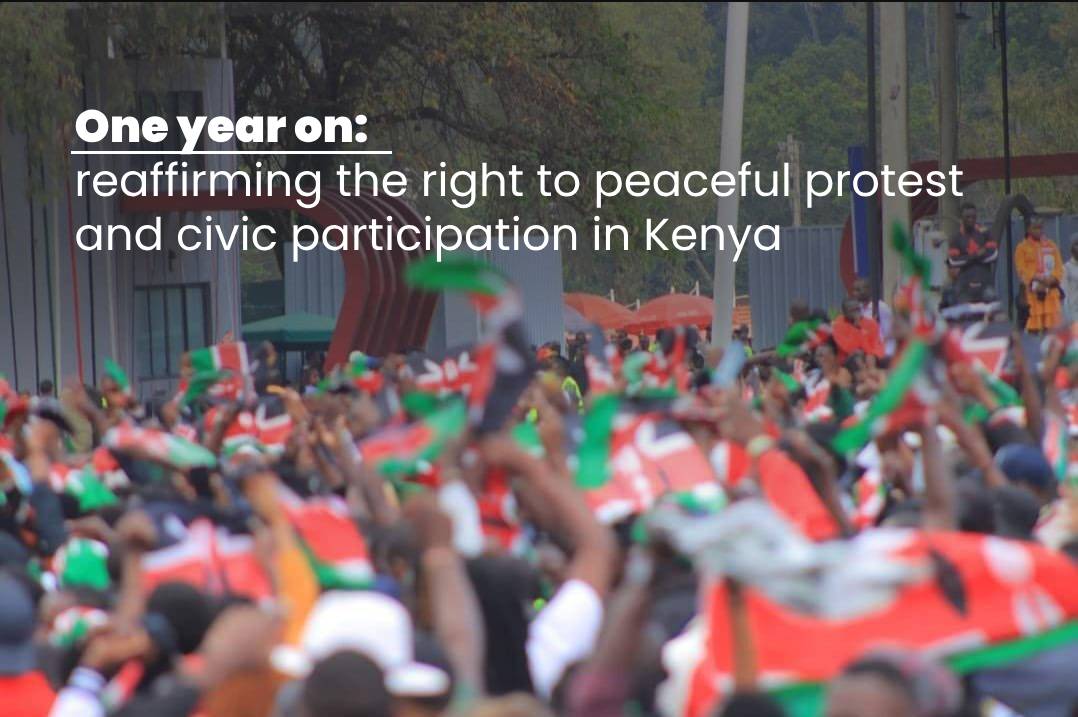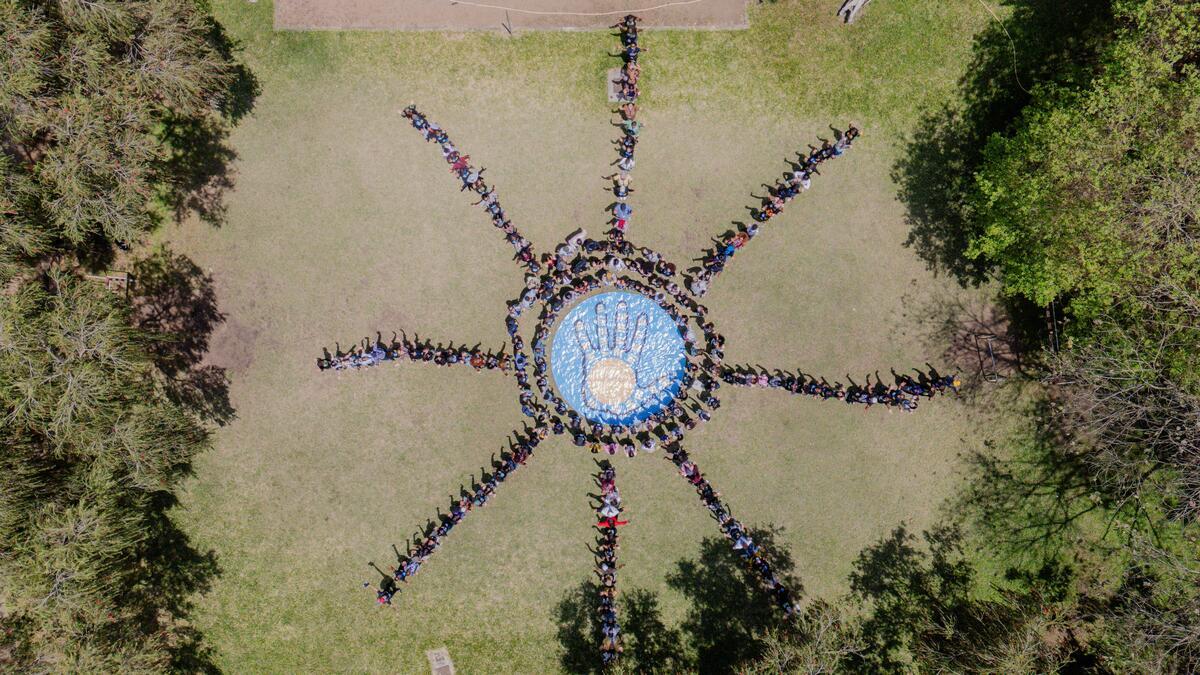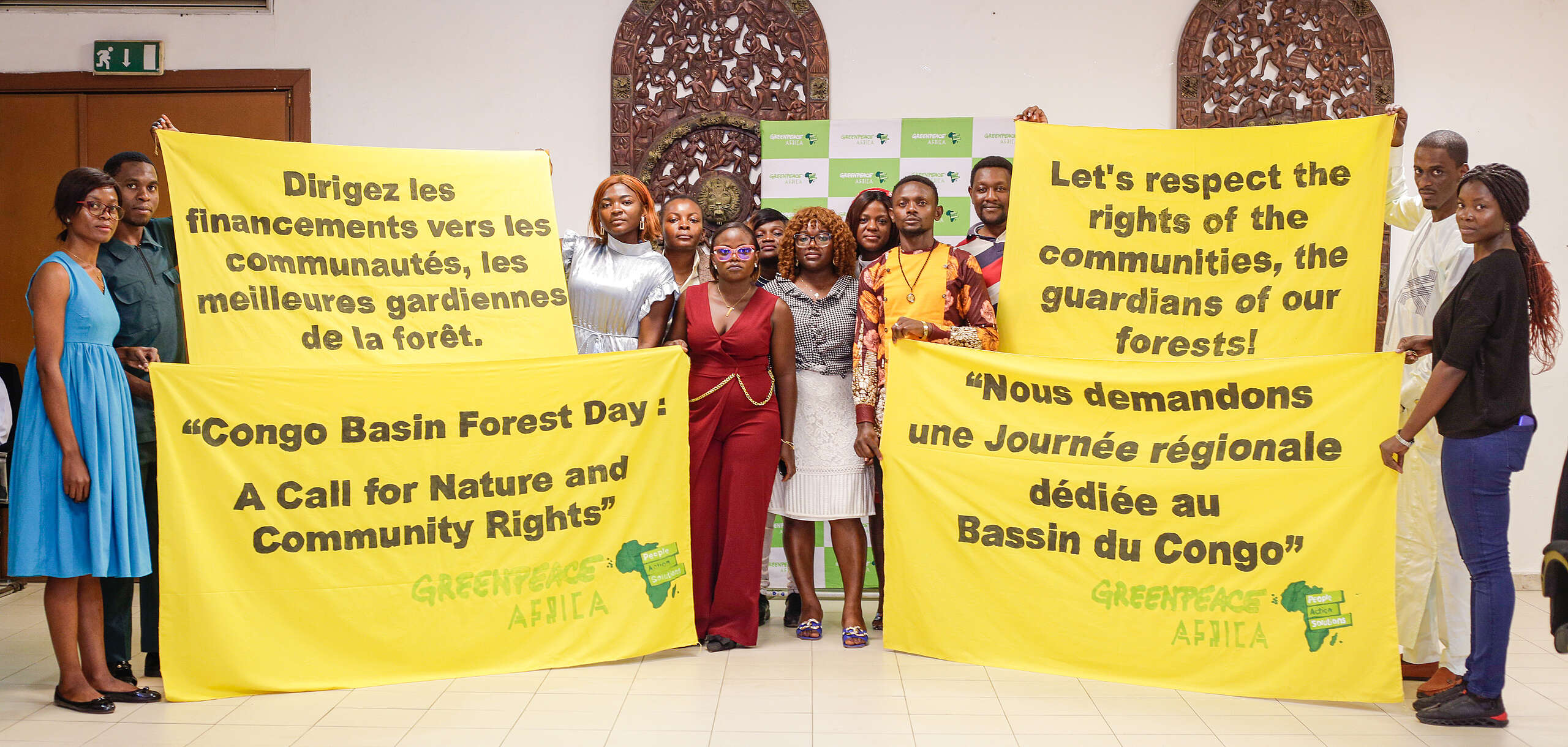In Cameroon, about half of my country is covered by forests. Home to incredible biodiversity, they are also central to the lives and livelihoods of many communities including the Baka. During my visits to the South region in the past three years, I had the opportunity to meet with the Baka people of the area. They’ve lived off the forest and firmly within it for centuries. Baka women in particular depend on the forest: they are food producers, knowledge holders, healers, and the keepers of their culture.
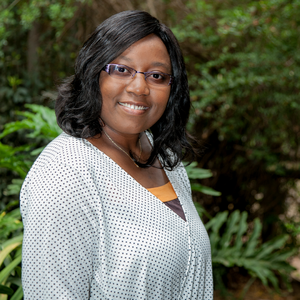
I recently had a few very interesting conversations with Baka women from Ando’o, Bitye and Edjom villages. From them, I learned they play key roles in preserving forests and hunting zones.
Over generations, they developed their own codes of forest conservation, including the prevention of overhunting. A beautiful principle of theirs is that successful hunting and gathering depend on fair sharing, both among themselves and with their environment:
“We do not hunt animals that are breeding. We also know how and when we must hunt and harvest.”
I was amazed by their comprehensive knowledge of forest medicinal plants, as well as animal behaviour. For example, Baka women know which plants are to be used to ease the process of giving birth. Baka women don’t give birth at a hospital, yet they are in good health. When I asked them how they manage to live in harmony with the rich wildlife of the forest, they mentioned many methods, including rotational hunting and harvesting.
Their use of the forest has helped to ensure that Baka women, like other indigenous peoples, maintain close links with the land where they have lived for centuries. This gives them a great interest in the protection of the forest and its biodiversity.
While talking to the Baka women, I realized how they are being forced to change their lifestyle. Their territory is shrinking due to industrial activities, from agribusiness, through logging, mineral and oil extraction. Instead of being sheltered by a canopy in the forest, many of the Baka women I met now live in roadside houses among Bantu communities. Furthermore, losing access to precious natural resources means a loss of autonomy and economic and social problems. For some, it’s meant forced displacement.
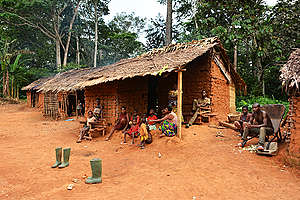
More shocking to me is that when it comes to women’s land tenure rights, even laws that recognize communal and collective land tenure systems may not be enough if they are not gender sensitive. That’s why I agree with Ruth Meinzen Dick, a former senior research fellow at the International Food Policy Research Institute, when she says : “women fall between two stools. They neither get the security of customary or collective tenure, nor do they actually usually acquire secure rights from the state.”
This multiple and intersectional discrimination is a significant obstacle to indigenous women. It limits their access to education, health care and justice, as well as their participation in political and decision-making processes. It subjects them to harsh poverty.
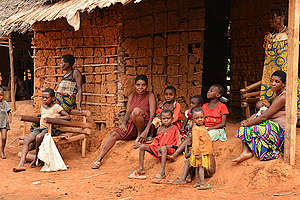
“The forest belonged to the Baka. We hunted and harvested medicinal plants in the forest with the seasons, which are determined according to our traditional rituals. Now that the forest has been destroyed and the rest is restricted, we no longer know how to live.”
As a woman, I was impressed to see how strong the link between Baka women and forest conservation is, but also frustrated by all the challenges they face.
Today, marking the international day of rural women, I want to call on all women, mothers of humanity, to stand with the Baka women to meet their challenges and raise awareness in society about the discrimination and inequalities they have been subjected to. I want us to remember the environmental disaster that comes with this.
We call on the Cameroonian government to recognize those heroines and their right to equally participate at all state levels and decision-making process. In accordance with article 22 of the United Nations Declaration on the Rights of Indigenous Peoples, effective measures must be taken to prevent all forms of violence and discrimination against indigenous women.
The forests may be far from the big cities in Cameroon, but the stories of great forest heroines like the Baka women help to bring them close to our hearts.
